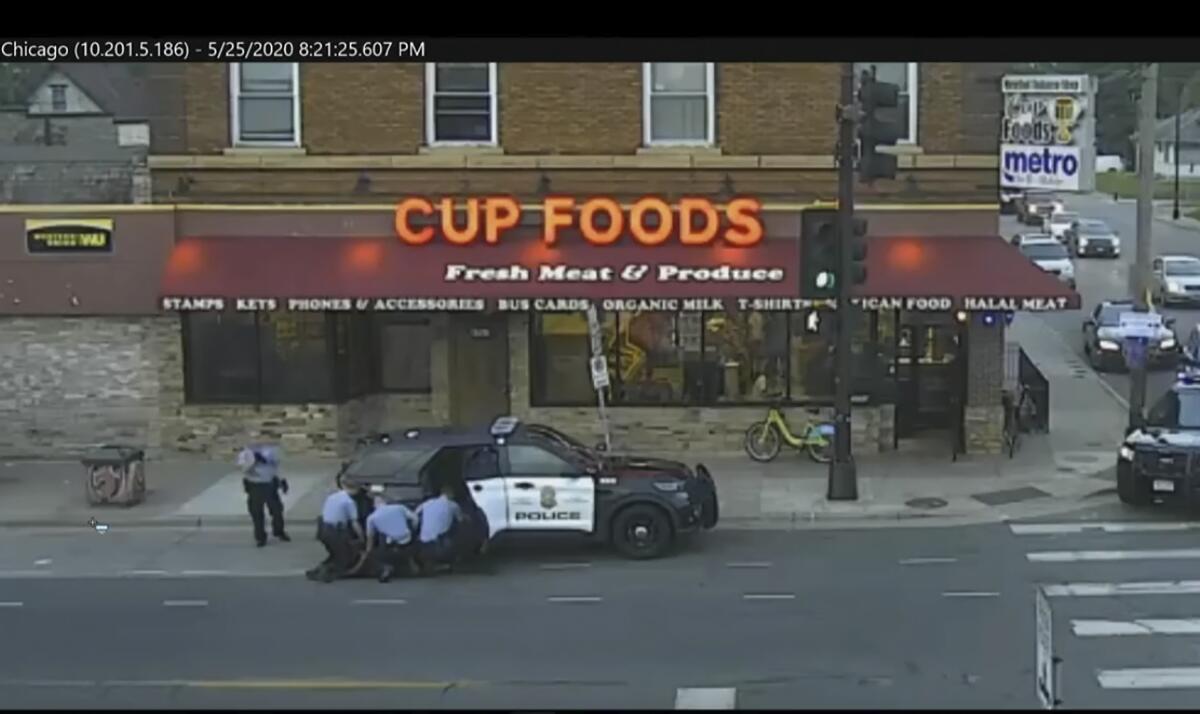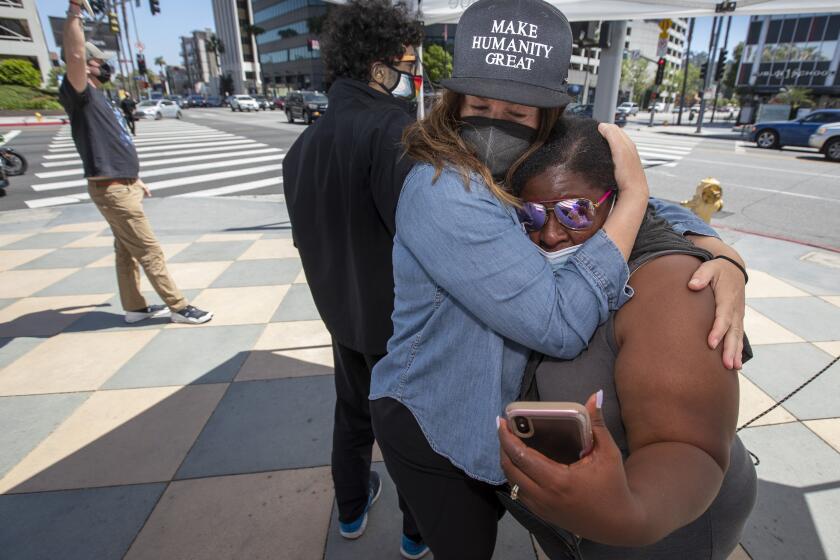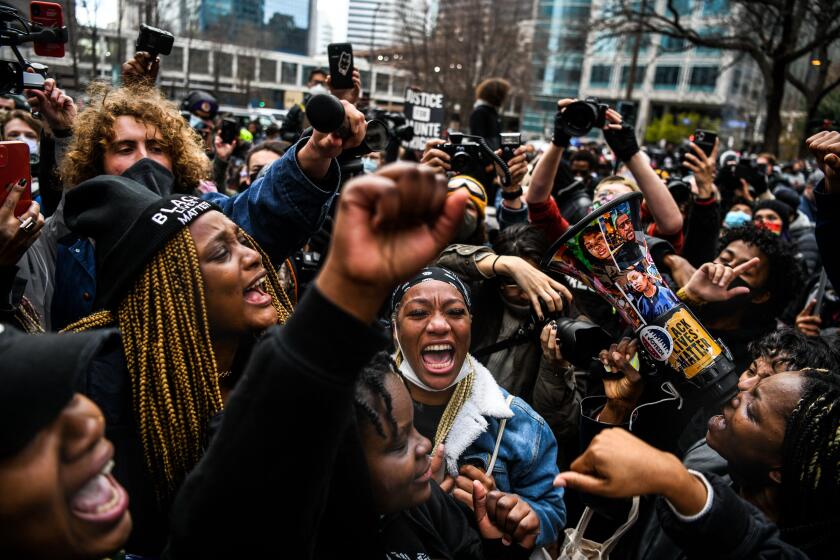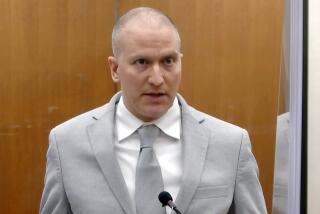4 former Minneapolis officers indicted on federal charges in George Floyd death

MINNEAPOLIS — A federal grand jury has indicted the four former Minneapolis police officers involved in George Floyd’s arrest and death, accusing them of violating Floyd’s constitutional rights as he was restrained facedown on the pavement and gasping for air, according to indictments unsealed Friday.
A three-count indictment unsealed Friday names Derek Chauvin, Thomas Lane, J. Alexander Kueng and Tou Thao.
Specifically, Chauvin is charged with violating Floyd’s right to be free from unreasonable seizure and unreasonable force by a police officer. Thao and Kueng are also charged with violating Floyd’s right to be free from unreasonable seizure because they did not intervene to stop Chauvin as he knelt on Floyd’s neck. All four former officers are charged with failing to provide Floyd with medical care.
Floyd’s arrest and death, which a bystander captured on cellphone video, sparked protests nationwide and widespread calls for an end to police brutality and racial inequities.
Chauvin was also charged in a second indictment, stemming from the arrest and neck restraint of a 14-year-old boy in 2017.
Lane, Thao and Kueng appeared via videoconference in U.S. District Court in Minneapolis. Chauvin was not part of the appearance.
Sporadic celebrations erupted after the former police officer was convicted in the death of George Floyd.
Chauvin was convicted last month on state charges of murder and manslaughter in Floyd’s death and is in Minnesota’s only maximum-security prison as he awaits sentencing. The other three former officers face a state trial in August and are free on bond. They were allowed to remain free after Friday’s federal court appearance.
Floyd, 46, died May 25, 2020, after Chauvin pinned him to the ground with a knee on his neck even as Floyd, who was handcuffed, repeatedly said he couldn’t breathe. Kueng and Lane also helped restrain Floyd — state prosecutors have said Kueng knelt on Floyd’s back and Lane held down Floyd’s legs. State prosecutors say Thao held back bystanders and kept them from intervening during the 9 ½-minute restraint.
Chauvin’s attorney, Eric Nelson, has filed a request for a new trial, citing many issues, including the judge’s denial of a request to move the trial amid the publicity it generated.
Nelson had no comment on the federal charges Friday. Messages left with attorneys for two of the other officers were not immediately returned, and an attorney for the fourth officer was reached briefly by phone before the call was dropped.
Across the country, people began to reflect on what it meant for a white officer to be convicted in the killing of a Black man.
Minnesota Atty. Gen. Keith Ellison, whose office is prosecuting the state charges, said that the U.S. government was responsible for protecting Americans’ civil rights and that “federal prosecution for the violation of George Floyd’s civil rights is entirely appropriate,” particularly in light of Chauvin’s murder conviction.
To bring federal charges in deaths involving police, prosecutors must conclude that an officer acted under the “color of law,” or government authority, and willfully deprived someone of his or her constitutional rights, including the right to be free from unreasonable seizures or the use of unreasonable force. That’s a high legal standard; an accident, bad judgment or simple negligence on the officer’s part isn’t enough to support federal charges.
Roy Austin, who prosecuted such cases as a former deputy assistant attorney general in the Department of Justice’s civil rights division, said prosecutors have to prove that the officers knew what they were doing was wrong in that moment but did it anyway.
Conviction on a federal civil rights charge is punishable by up to life in prison or even the death penalty, but those stiff sentences are extremely rare, and federal sentencing guidelines rely on complicated formulas that indicate the officers would get much less if convicted.
In Chauvin’s case, if the federal court uses second-degree murder as his underlying offense, he could face anywhere from 14 years to slightly more than 24 years in prison, depending on whether he takes responsibility, said Mark Osler, a former federal prosecutor and professor at the University of St. Thomas School of Law.
Breaking News
Get breaking news, investigations, analysis and more signature journalism from the Los Angeles Times in your inbox.
You may occasionally receive promotional content from the Los Angeles Times.
Osler said the guidelines are clear that any federal sentence would be served at the same time as a state sentence. Chauvin is due to be sentenced on the state charges June 25.
The second indictment against Chauvin on Friday alleges that he deprived a 14-year-old of his right to be free of unreasonable force when he held the teen by the throat, hit him in the head with a flashlight, and held his knee on the boy’s neck and upper back while he was prone, handcuffed and unresisting. According to a police report of the 2017 encounter, Chauvin wrote that the youth — whom he described as 6-foot-2 and about 240 pounds — resisted arrest and that, after he was handcuffed, Chauvin “used body weight to pin” the teenager to the floor. The youth was bleeding from the ear and needed two stitches.
Chauvin was convicted April 20 of second-degree unintentional murder, third-degree murder and second-degree manslaughter in Floyd’s death. Experts say he will probably face no more than 30 years in prison when he is sentenced next month.
The other former officers face charges in their trial this summer that they aided and abetted second-degree murder and manslaughter.
Within days of the Chauvin verdict, the Justice Department announced that it was opening a sweeping investigation into the Minneapolis Police Department. The investigation will examine whether there is a pattern or practice of unconstitutional or unlawful policing at the department, and it could result in major changes.
More to Read
Sign up for Essential California
The most important California stories and recommendations in your inbox every morning.
You may occasionally receive promotional content from the Los Angeles Times.












